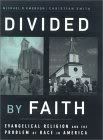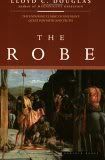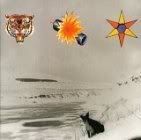 I recently finished reading Following Jesus in a Culture of Fear by Scott Bader-Saye. It's one of the best books I've read in a long time, and has prompted me to re-enter the blogosphere after a long leave of absence to do a chapter by chapter review of it.
I recently finished reading Following Jesus in a Culture of Fear by Scott Bader-Saye. It's one of the best books I've read in a long time, and has prompted me to re-enter the blogosphere after a long leave of absence to do a chapter by chapter review of it.
So I'll start with, appropriately, the first chapter. Titled Fear for Profit, it sets up the book by outlining how fear is in many ways the air we breathe. (One caveat - Bader-Saye is from North America and is drawing on North American culture. It may not generalize globally, but I suspect that most points would ring true) Our cultural identity is sometimes built around being consumers, and since fear often drives consumption, we have become masters at manipulating it. He points to a couple of major areas that this takes place:
First, parenting. Drawing upon his experience of fatherhood, he points out the ways in which fear can become overwhelming. From choosing the type of birth (hospital? home? natural? meds?) to baby proofing the house (spawning a billion dollar child safety industry) to choosing a parenting method (consult one of the hundreds of books written by experts contradicting each other), it becomes easy to to spend more time "think[ing] about what we want to prevent and avoid rather than what we want to encourage and develop." (14) The lack of cultural consensus about standards and norms confuses the issue even more - "it's not even that we don't know if we're 'getting it right', it's that we don't even know what 'right' would look like." (13) Honestly, I know several people who have opted to not even have children simply because it all seems like too much. And I can't say I blame them!
Then he moves into the broad area of media and marketing. We all know that we will see millions of commercials over our lifetimes, most of them instilling fear that without x product we are doomed to being sexless, ugly, and lonely. It's a fairly obvious ploy, and one that is much discussed. Perhaps less discussed is the way that TV and news increase our fearfulness. News programs need advertising dollars, so they air the most sensational and shocking news stories to generate ratings. A quick glance online shows rape, murder, new toxic substances/health dangers, economic crisis, etc. topping the headlines on all the major networks. Witnessing so much brutality both on the news and scripted programming (see: Dexter, 24, the many crime procedurals, etc.), we start to believe that the world is a more dangerous place than it actually is. In fact, "in the 1990's crime rates were dropping while 2/3 of Americans believed they were rising." (15) Our fears no longer correspond to our actual risk levels.
Thirdly, there is politics. In a post 9/11 world, we are all too aware of our potential vulnerability, and will go to fairly extreme means to ensure our safety. Politicians capitalize on this in their rhetoric (by the way - I've only caught the headlines so far this election cycle, how are the political ads? I'm curious...). We also tend to be more suspicious of our neighbors, especially neighbors who aren't just like us. Makes it difficult to practice loving them.
Finally, he puts the spotlight on the church, and its tendency to manipulate fear from the pulpit. Could be fear of hell, fear of science, fear of loss, or whatever. Less direct than the old fashioned fear of the sword method, but I still find fear as a driving force of spirituality problematic. At least this kind of fear.
So that's all for this chapter, and I think he's laid the problem out well. Next week? Fear and the Moral Life.
Stay Tuned. Or else.









0 comments:
Post a Comment